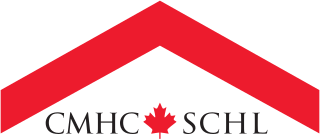Related Research Articles

Commodore International was an American home computer and electronics manufacturer founded by Jack Tramiel. Commodore International (CI), along with its subsidiary Commodore Business Machines (CBM), was a significant participant in the development of the home-computer industry in the 1970s, 1980s and early 1990s. The company developed and marketed the world's best-selling computer, the Commodore 64 (1982), and released its Amiga computer line in July 1985. With quarterly sales ending 1983 of $49 million, Commodore was one of the world's largest personal computer manufacturers.

CT Financial Services Inc., operating as Canada Trust, was a financial services holding company headquartered in Toronto, Ontario, which operated in Canada through its trust company subsidiaries, including Canada Trustco Mortgage Company and The Canada Trust Company.

The Canadian Imperial Bank of Commerce is a Canadian multinational banking and financial services corporation headquartered at CIBC Square in the Financial District of Toronto, Ontario. The Canadian Imperial Bank of Commerce was formed through the 1961 merger of the Canadian Bank of Commerce and the Imperial Bank of Canada, in the largest merger between chartered banks in Canadian history. It is one of two "Big Five" banks founded in Toronto, the other being the Toronto-Dominion Bank.

BCE Inc., an acronym for their full name as Bell Canada Enterprises Inc., is a publicly traded Canadian holding company for Bell Canada, which includes telecommunications providers and various mass media assets under its subsidiary Bell Media Inc. Founded through a corporate reorganization in 1983 when Bell Canada, Northern Telecom, and other related companies all became subsidiaries of Bell Canada Enterprises Inc., it is one of Canada's largest corporations. The company is headquartered at 1 Carrefour Alexander-Graham-Bell in the Verdun borough of Montreal, Quebec, Canada.

Royal Bank of Canada is a Canadian multinational financial services company and the largest bank in Canada by market capitalization. The bank serves over 17 million clients and has more than 89,000 employees worldwide. Founded in 1864 in Halifax, Nova Scotia, it maintains a corporate headquarters in Toronto and its head office in Montreal. RBC's institution number is 003. In November 2017, RBC was added to the Financial Stability Board's list of global systemically important banks.

Canadian Western Bank, also operating as CWB Financial Group, is a Canadian bank based in Edmonton, Alberta. The bank serves clients both in Western Canada and in other provinces.

The Bear Stearns Companies, Inc. was a New York City-based global investment bank, securities trading, and brokerage firm that failed in 2008 as part of the global financial crisis and recession, and was subsequently sold to JPMorgan Chase. The company's main business areas before its failure were capital markets, investment banking, wealth management, and global clearing services, and it was heavily involved in the subprime mortgage crisis.

The Canada Deposit Insurance Corporation is a Canadian federal Crown Corporation created by Parliament in 1967 to provide deposit insurance to depositors in Canadian commercial banks and savings institutions. CDIC insures Canadians' deposits held at Canadian banks up to C$100,000 in case of a bank failure. CDIC automatically insures many types of savings against the failure of a financial institution. However, the bank must be a CDIC member and not all savings are insured. CDIC is also Canada's resolution authority for banks, federally regulated credit unions, trust and loan companies as well as associations governed by the Cooperative Credit Associations Act that take deposits.
A special-purpose entity is a legal entity created to fulfill narrow, specific or temporary objectives. SPEs are typically used by companies to isolate the firm from financial risk. A formal definition is "The Special Purpose Entity is a fenced organization having limited predefined purposes and a legal personality".

A collateralized debt obligation (CDO) is a type of structured asset-backed security (ABS). Originally developed as instruments for the corporate debt markets, after 2002 CDOs became vehicles for refinancing mortgage-backed securities (MBS). Like other private label securities backed by assets, a CDO can be thought of as a promise to pay investors in a prescribed sequence, based on the cash flow the CDO collects from the pool of bonds or other assets it owns. Distinctively, CDO credit risk is typically assessed based on a probability of default (PD) derived from ratings on those bonds or assets.

Canada Mortgage and Housing Corporation (CMHC) (SCHL) is Canada's national housing agency, and state-owned mortgage insurer. It was originally established after World War II, to help returning war veterans find housing, and is a wholly-owned Crown Corporation of the Government of Canada. Since then, it has seen its mandate expand to the mandate of improving access to housing, including owned and rental.
First Horizon Bank, formerly First Tennessee Bank, is a financial services company, founded in 1864, and based in Memphis, Tennessee. As the leading subsidiary of First Horizon Corporation, it provides financial services through locations in 12 states across the Southeast.

Ally Financial is an American bank holding company organized in Delaware and headquartered in Detroit, Michigan. The company provides financial services including car finance, online banking via a direct bank, corporate lending, vehicle insurance, mortgage loans, and an electronic trading platform to trade financial assets.
Irving Gould (1919–2004) was a Canadian businessman credited with both saving and sinking Commodore.

Canadian Breweries Limited (CBL), originally the Brewing Corporation of Ontario, was an Ontario-based holding company in the brewing industry. The company was founded in 1930 by a merger of two breweries, Brading of Ottawa and Kuntz of Kitchener-Waterloo. Under the direction of its top executive, E. P. Taylor, the company bought or merged many of the smaller competitors existing after the repeal of prohibition. The new company closed many plants, reduced the number of beer brands and built new, larger plants to produce enough beer for a much larger geographic area. By the 1950s, the company had reduced the number of beer brands from approximately one hundred to six. Canadian Breweries became part of a large conglomerate of manufacturing and consumer businesses controlled by the Argus Corporation in 1945.

AVI Global Trust is a London-based British investment trust. The company is a constituent of the FTSE 250 Index. The chairman is Graham Kitchen.
The New York State Banking Department was created by the New York Legislature on April 15, 1851, with a chief officer to be known as the Superintendent. The New York State Banking Department was the oldest bank regulatory agency in the United States.

Between May 2006 and the end of 2012 there were sixty-seven finance company collapses in New Zealand; including companies entering into liquidation, receivership or moratoria. An inquiry by the New Zealand Parliament estimated losses at over $3 billion that affected between 150,000 and 200,000 depositors. The most high-profile collapses were South Canterbury Finance, Hanover Finance and Bridgecorp Holdings. The collapse radically reduced the size and importance of the non-bank finance sector in New Zealand. According to the Reserve Bank, at the height of financial expansion prior to the 2007 crisis, non-bank lenders had assets of about $25 billion and made up 8 percent of lending by financial institutions. By late 2013 the size of the finance sector was half its previous size and accounted for only 3 percent of institutional lending. In the years following the beginning of the collapses, sweeping legislative and regulatory changes were made, aimed at improving oversight and regulation of the finance industry.
Wealth One Bank of Canada is a Canadian Schedule I bank opened in 2016 with a focus on providing services to Chinese-Canadians. It provides banking services online and through retail offices in Toronto, Ontario, and in Vancouver, British Columbia.
Nelson Morgan Davis was a Canadian businessman. He owned a conglomerate of more than 50 transportation and manufacturing companies, and was one of Canada's richest people.
References
- 1 2 M. J. Rossant (November 14, 1965). "Atlantic Acceptance: Even the Big Ones Got Stung; U.S. Investors Lose Heavily Following Collapse of Canada's Atlantic Acceptance". The New York Times. New York Times.
- ↑ Moose Pastures and Mergers: The Ontario Securities Commission and the Regulation of Share Markets in Canada, 1940-1980 by Christopher Armstrong
- ↑ Masters of Paradise: Organized Crime and the Internal Revenue Service in the Bahamas by Alan A. Block
- ↑ Report of The Royal Commission Appointed to Inquire Into the Failure of Atlantic Acceptance Corporation Limited. September 12, 1969
- ↑ No Additional Charges Urged The Ottawa Journal December 12, 1969
- ↑ Why deposit insurance matters The National Post February 20, 2014